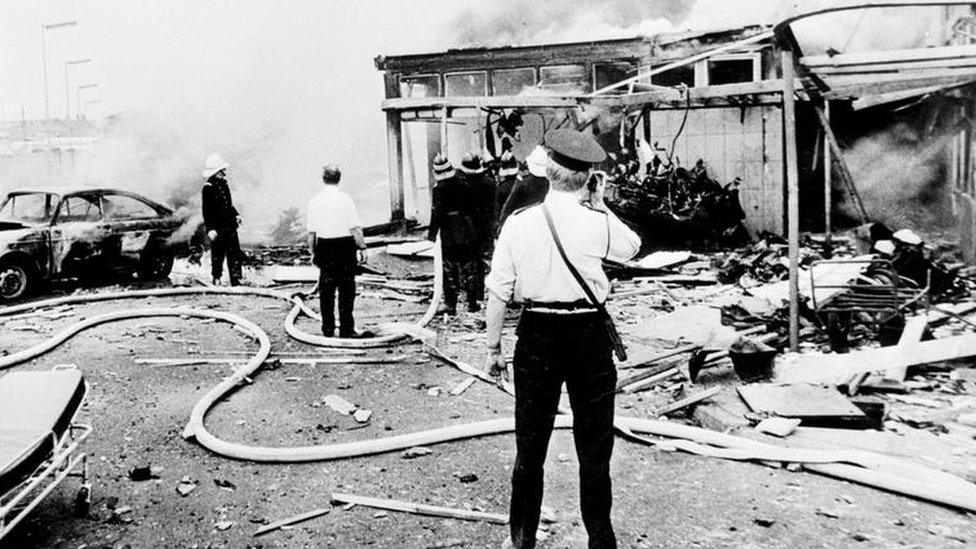Brandon Lewis accused of trying to 'scapegoat' NI Troubles victims
- Published
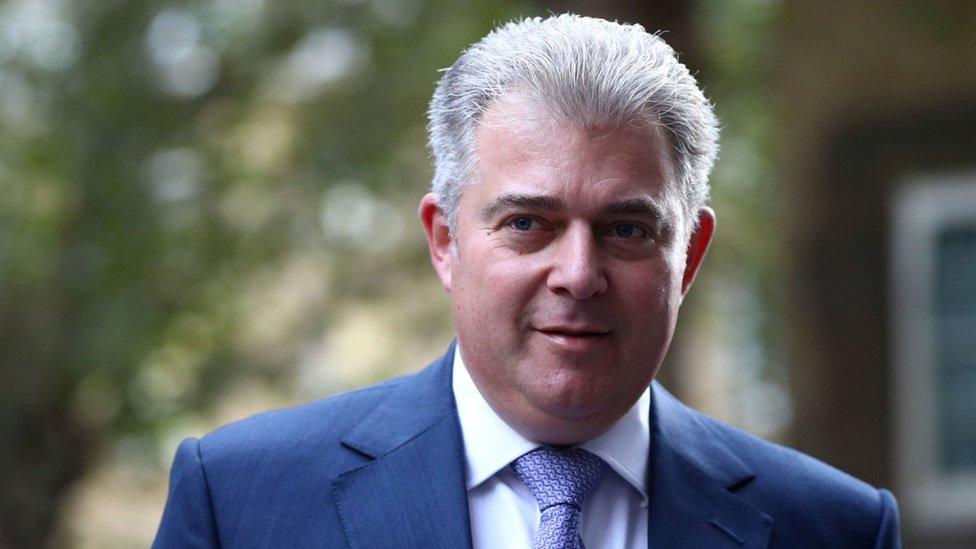
Brandon Lewis claimed in the Commons that the victims' group Wave asked him to "pause" the process
Secretary of State Brandon Lewis has been accused of trying to "scapegoat" victims for his "inaction" in dealing with the legacy of the Troubles.
The accusation was made by the victims' group, Wave, after Mr Lewis referred to the group in the House of Commons.
He claimed Wave asked him to "pause" the engagement around his proposed new legacy plan because of the pandemic.
But a spokesman for Wave hit out at his remarks. "At no stage did we even remotely suggest that," he said.
Addressing MPs in the Commons on Wednesday, Mr Lewis said: "It was actually the Wave group back in March who asked us to pause the engagement as they were focused, and their members were focused, on Covid, which I think was a reasonable position."
'Toxic legacy bombshell'
In a scathing response, Wave's spokesman said: "It is frankly pathetic that the SoS (Secretary of State) should seek to scapegoat Wave, and by extension victims and survivors, for nearly nine months of his own inaction".
"At no stage did we even remotely suggest that that engagement on this unilateral departure from the Stormont House Agreement should be 'paused'.
"Is he seriously suggesting that we would want victims and survivors to swing in the wind and do nothing on their behalf in the aftermath of this bolt from the blue, toxic legacy bombshell?
"We told him that it would be immoral to push legislation through under the cover of Covid-19."
The roots of Northern Ireland’s Troubles lie deep in Irish history
The 2014 Stormont House Agreement proposed a new Historical Investigations Unit which would examine unsolved murders carried out during the Troubles.
But earlier this year, the government introduced new proposals which represented a significant rethink of its approach to dealing with Northern Ireland's violent past.
The current plan would see the vast majority of almost 2,000 unsolved murder cases closed permanently, with new legislation which would prevent them from ever being reopened.
Only a small number of Troubles killings would receive "full-blown" investigations, a move which has been widely criticised.
It was seen as a way to protect Army veterans from future prosecutions, and the government stated that it would "end the cycle of reinvestigations for the families of victims and (Army) veterans alike".
Last month, Wave wrote to MPs telling them that the NI secretary was "dangerously deluded" if he thought current government proposals on Troubles legacy cases would help reconciliation in Northern Ireland.
On Wednesday, Mr Lewis was challenged in the chamber by Shadow Secretary of State for Northern Ireland Louise Haigh over the delay in bringing forward proposals to deal with the legacy of Troubles.
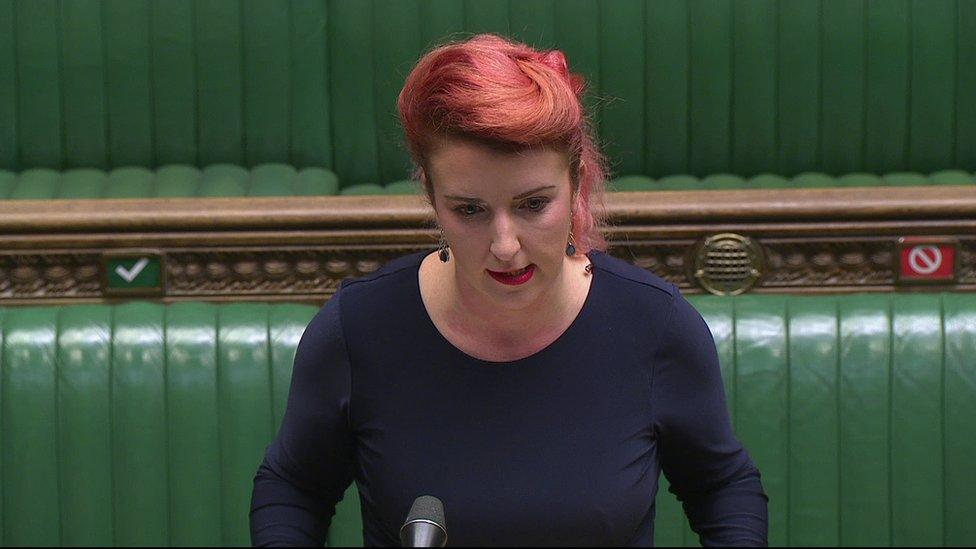
Mr Lewis made his comments in response to a question from Labour's Louise Haigh
She quoted concern expressed by Wave at the lack of engagement on the issue, and referred to Wave's letter to MPs which claimed Mr Lewis was dangerously deluded.
In a later statement, Ms Haigh said the NI secretary's approach to legacy had been "deeply disrespectful and hurtful to victims across Northern Ireland" and she called on him to apologise for his comments in the chamber on Wednesday.
"His refusal to engage directly with victims' groups is badly damaging trust and critically undermining the chances of designing a comprehensive solution to deal with the legacy of the past," she added.
"This has now been seriously compounded by misleading claims that Wave and other victims' groups themselves asked to pause engagement during the Covid crisis."
Related topics
- Published26 October 2020
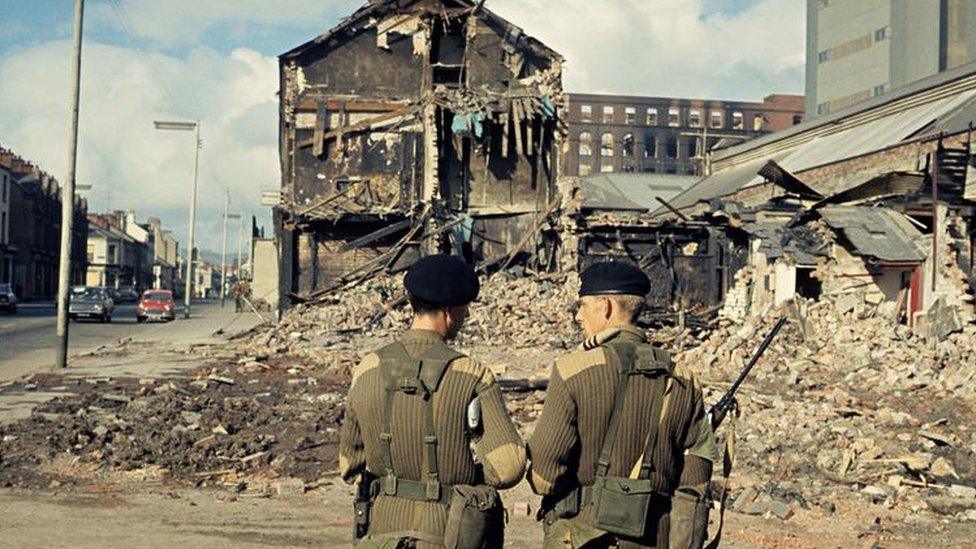
- Published20 October 2020
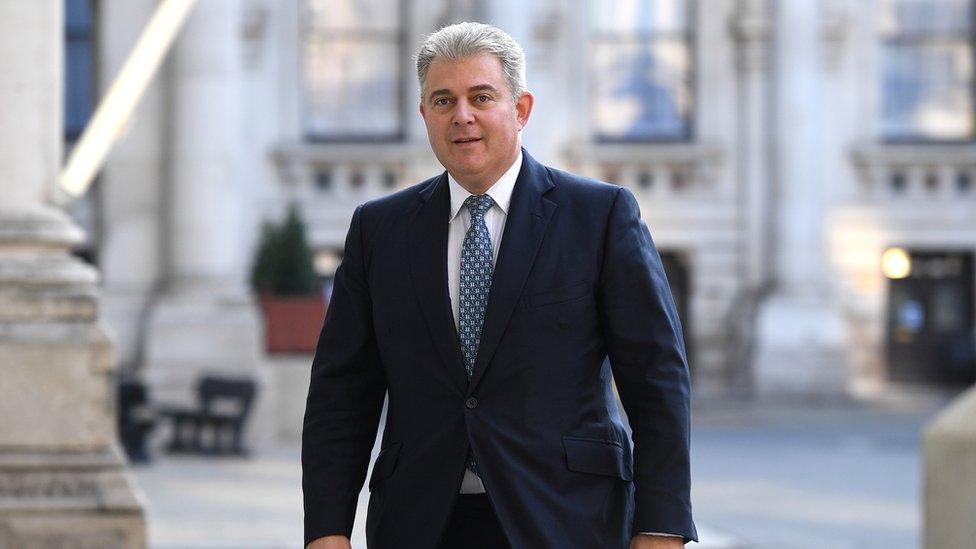
- Published18 March 2020
